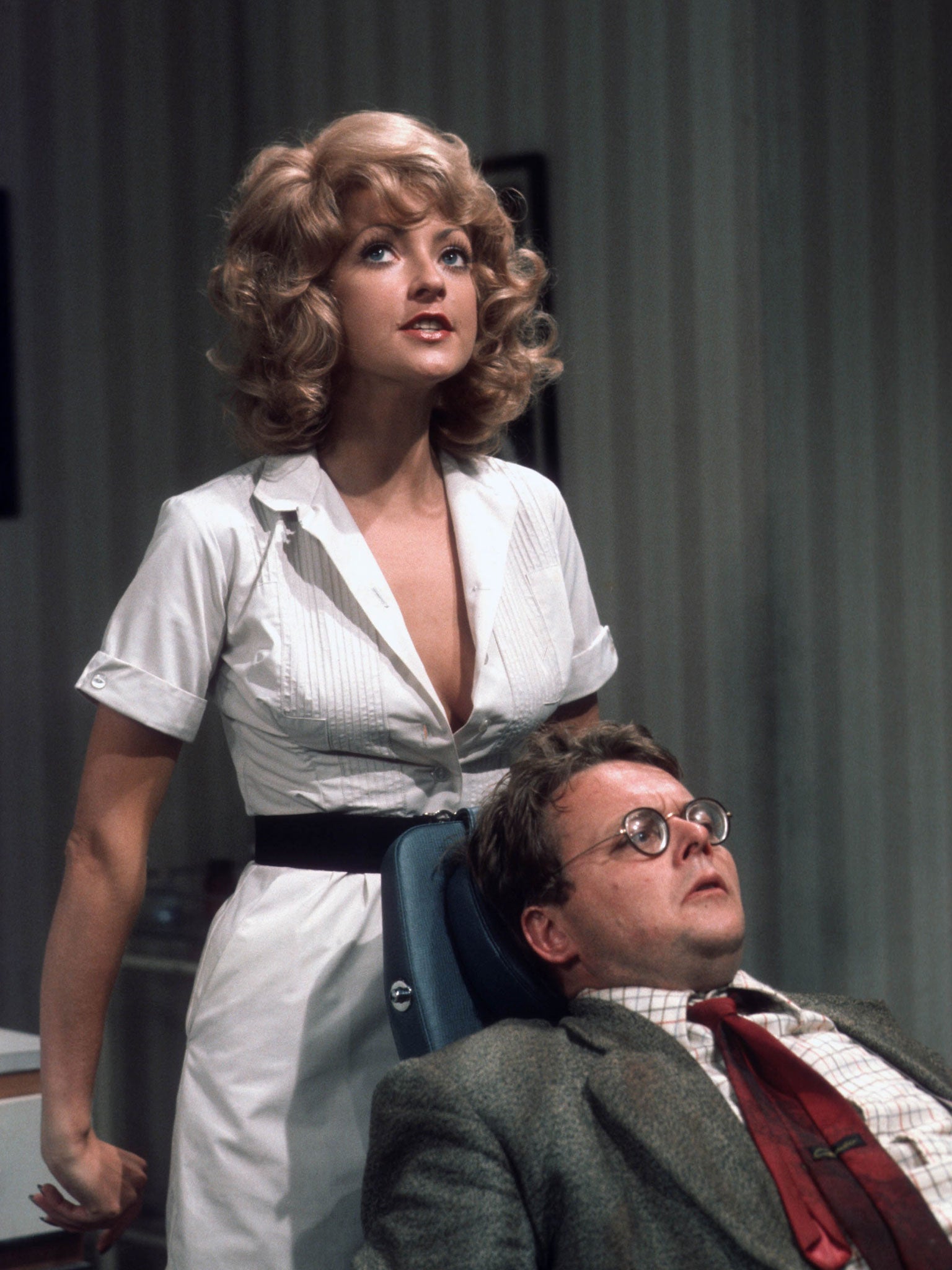Bill Wallis: Actor who bloomed in the golden age of British satire
His diverse career took in ‘Beyond The Fringe’, Brecht, ‘Blackadder’ and Shakespeare

From playing silly buggers with Peter Cook and Dudley Moore to being a provincial, and therefore uncrowned, king of modern Lears, it seemed there was little Bill Wallis couldn’t do. Portly, with mischievous eyes and a hushed, smiling voice, he was obvious casting as, for instance, Mole in Toad of Toad Hall at Oxford in 1969, but his career was full of surprises, and full of successes. To television viewers he is probably most familiar as the cheerful jailer in Blackadder (a series he appeared in three times), but even on the small screen his career was impressively diverse, from sober crime drama to political satire.
The son of an engineer, he was born in 1936 in Surrey, attending Farnham Grammar School before winning a scholarship to St John’s, Cambridge, the first example of his gift for timing. Satire was in the air, and he befriended fellow students Peter Cook, David Frost and Joe Melia, taking over from Alan Bennett in the London Beyond the Fringe when the original stars took the show to the States.
While still a student and acting with the Cambridge Mummers he was roughly reviewed in John Tydeman’s production of Marcel Aymé’s Birds of a Feather, but fared better in his first professional job, as Mr Plod in Noddy in Toytown at the Royal Court, Liverpool in 1959 that was so odious that it caused The Stage to question whether, despite Wallis’s skills, “policemen should be presented in such a way in a children’s play.”
One Hand Clapping at the Lyceum in Edinburgh was announced both as “a surrealist vaudeville” and “a Zen revue”, and got him noticed this time for his talent as a mime. Charles Marowitz’s crazy Hamlet at the Jeanette Cochrane in 1966 saw the 29-year-old Wallis play Polonius to a Hamlet who was his senior (Anthony Ainley). After starring alongside Max Wall in the Royal Court’s production of Jarry’s violent satire Ubi Roi in 1966, he got the chance to act on home turf, appearing at Farnham Castle in a run of plays including Dry Rot, where he was described as “big, bluff and bearded, with a furtively rolling eye”.
After months of tussles with the Lord Chamberlain, when Joan Littlewood finally got to stage Mrs Wilson’s Diary at the Theatre Royal, Stratford in 1967, she cast Wallis as Harold Wilson in a satire that was described as “an affectionate lampoon” and which had developed from Private Eye’s more mean-spirited digs at the couple in print. While unmemorable musically (despite the toothy number “Who Are The Bastards Now?”), its cheekiness was summed up in the programme, where, under Littlewood’s name, a cartoon of Wilson said, “Bang, my good woman, goes your hope of an Arts Council Grant.” Wallis revived the role for a TV version two years later, and in Richard Lester’s basket-case of a movie The Bed-Sitting Room (1969).
He was a great favourite of the director Michael Bogdanov since they worked together on a late-night television satire, Broad and Narrow (1965). At the Leicester Haymarket in 1974 Wallis dominated an angry updating of Brecht’s The Caucasian Chalk Circle, set on a building site and questioning the ethics of land ownership. “Abandoning restraint, reeling into the audience and ad-libbing outrageously”, he certainly embodied the exasperation of political theatre of the time, while in the following year’s Romeo and Juliet, as a “chubby, bespectacled Mercurio”, he was described by one critic as “surely one of the most sensitive and intelligent actors of his generation”, and someone who “actually understands the implications of every vowel he utters.”
He played Claudius, Richard III and even Willy Loman for Bogdanov, whose final gift to Wallis was to allow him to deliver a Sir Toby Belch worthy of his talents at Ludlow in 2004 after he had been hampered in Griff Rhys Jones’s awkward RSC Twelfth Night in 1992. He had a long association with the Bristol Old Vic, and it was there that he got to play Lear in 2000 in a splendidly cast production all round. Wallis’s regality may never have seemed deep-rooted but as he descended into the maelstrom he expertly evoked the sensitivity and absurdity he had spent most of his career fine-tuning.
He was also a prolific radio performer, and for two decades was part of the satirical sketch show Week Ending. He began his television career in style with As You Like It (1963) and Philip Savile’s Hamlet at Elsinore (1964), a production that starred a young Michael Caine. Although rarely in major roles he always delighted on the screen, even if just popping up as Adrian Mole’s GP, or as a deliciously sadistic barber-surgeon in Robin of Sherwood (1986). More than anything else though, Wallis was a child of the golden age of British satire, and has left the stage at a time when we need the likes of him more than ever.
William Wallis, actor: born Guildford 20 November 1936; married 1960 Jean Spalding (marriage dissolved; one son, one daughter), 1979 Karen Mills (one son, one daughter); died Bath 6 September 2013.
Join our commenting forum
Join thought-provoking conversations, follow other Independent readers and see their replies
Comments
Bookmark popover
Removed from bookmarks